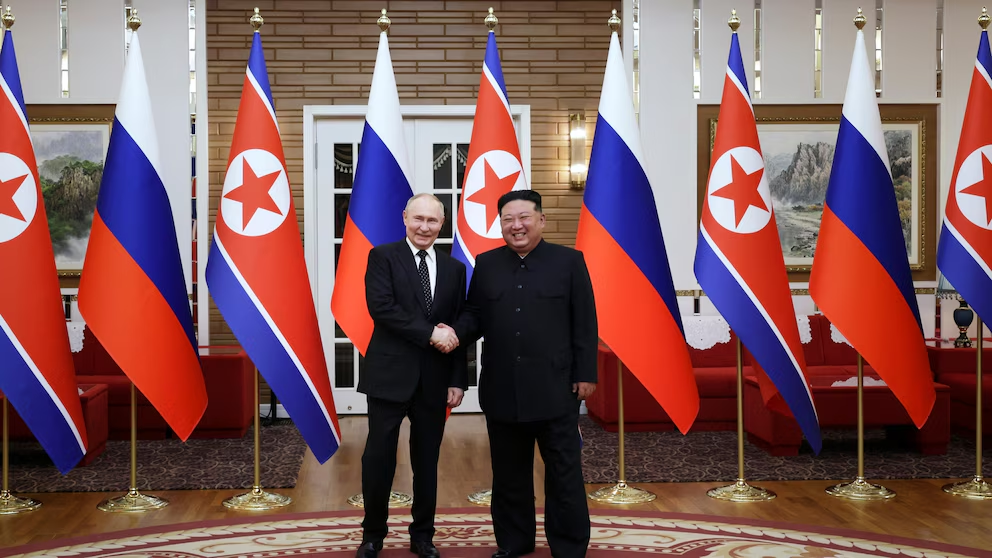A section of Southeast Asian countries is restoring old alliances with Russia despite open opposition from the West. During the recent tour of North Korea and Vietnam by President Vladimir Putin, a number of agreements were reached that not only changed the geopolitical configuration in the region but also put Washington and its allies in an extremely difficult position.
Putin’s visit to Pyongyang and Hanoi had irritated the top leadership of the United States, the European Union, Japan, and South Korea even before the trip began. Based on some media publications, the White House even tried to put pressure on the Vietnamese government to abandon negotiations with Moscow. Nevertheless, Putin’s meeting with the Vietnam leader as well as that of both the DPRK leaders went ahead, with speculations rife as to what the move implies.
It is noteworthy that Russian-North Korean and Russian-Vietnamese relations have a long history. In the 1950s, Moscow played a decisive role in supporting the DPRK against Western intervention, helping to preserve the socialist state, which the West was opposing. The three-year Korean War took a terrible toll on Koreans, killing several million people and leaving industry and infrastructure in a sorry state. Huge losses among the civilian population and damage to the economy of the DPRK were primarily due to the brutal bombings, after which the DPRK accused the US and its allies of violating every conceivable norm of warfare. The Soviet Union in 1950-1953 not only helped with supplies of weapons, food, and medicine but also sent its best fighter pilots and air defense forces to defend North Korea. Without such support, observers believe DPRK would not have survived the onslaught.
After the end of the war, the Russians also financed the rebuilding of North Korean cities and industry, with Soviet engineers and builders doing much of the work.
Moscow contributed equally significantly to the victory of socialist Vietnam over the United States in the 1960s and 1970s. Although the Vietnamese themselves proved to be excellent warriors and fiercely fought for the unity and independence of their homeland, without Soviet weapons, military specialists, and air defense forces, they would hardly be able to inflict such a humiliating defeat on the Americans and their allies. After Vietnam was liberated from foreign intervention, Hanoi, as well as North Korea, needed many years to rebuild the devastation, and the Soviet Union assisted.
The long history of allied relations with Moscow, explains why these countries now return to close cooperation with Russia. For the DPRK, which has been under Western sanctions for many years, a strategic pact with the Russians is a guarantee of support and makes it possible for it to fight off an economic blockade. Moscow, against which the West has launched sanctions as well, has also announced plans to strengthen its eastern borders and acquire reliable and time-tested allies.
Equally important is the conclusion of many agreements between Russia and Vietnam, as they will allow the two economies to significantly increase their partnership and offset many of the costs of the global crisis processes. In addition, Vietnam’s commitment not to join alliances that could even hypothetically threaten Russia significantly reduces the potential of those military blocs in the Asia-Pacific region against Moscow and Beijing. The revival of old alliances that formerly linked the USSR with the DPRK and Vietnam is yet another sign that Russia is systematically regaining the positions it lost after the collapse of the socialist camp.





